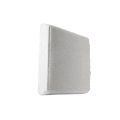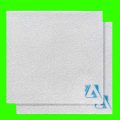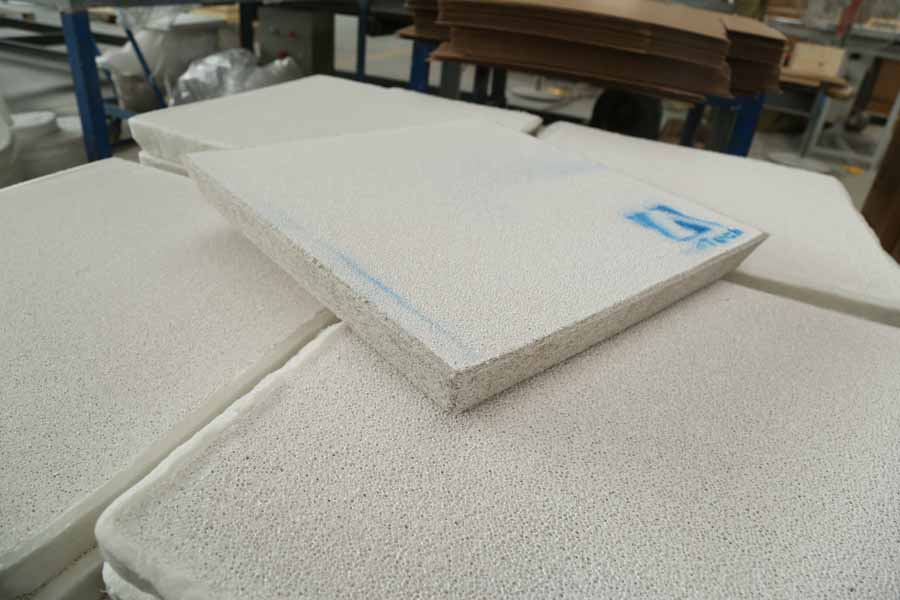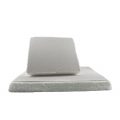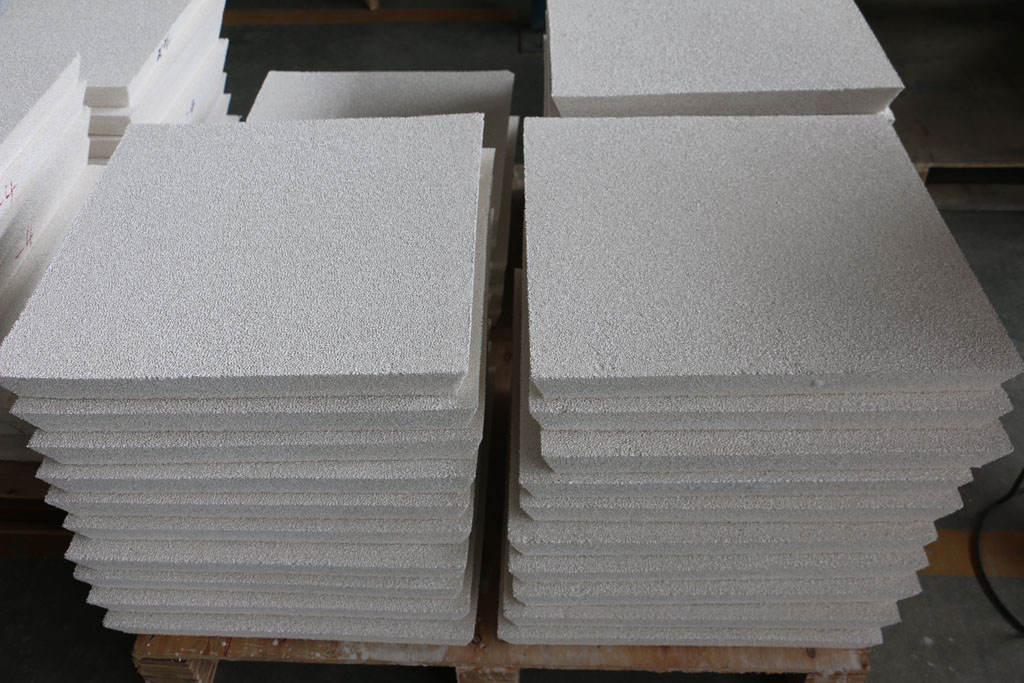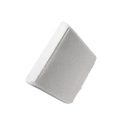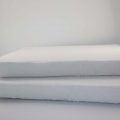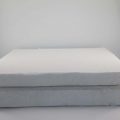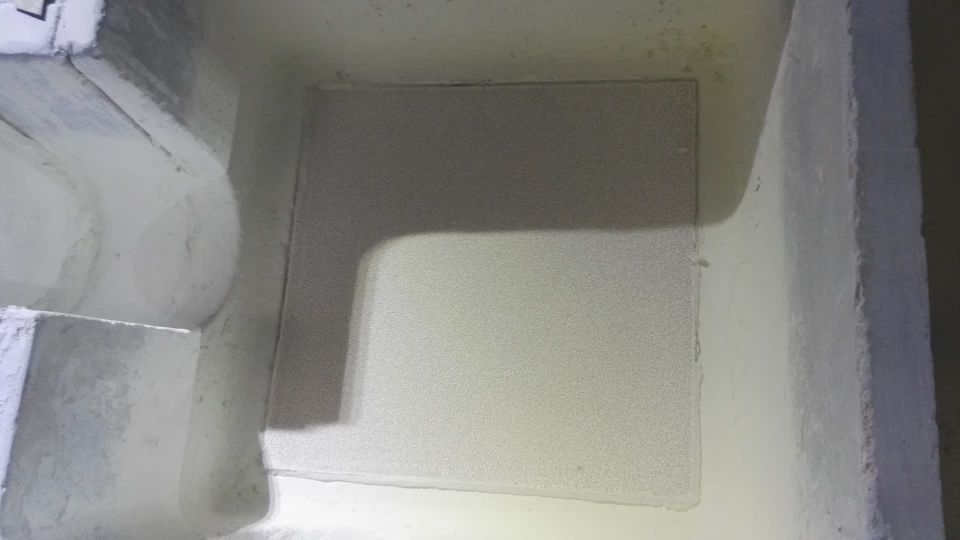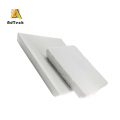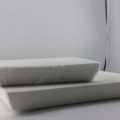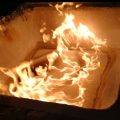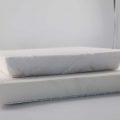Ceramic Used To Filter Metal applies the purification and filtration of aluminum liquid during the casting process of aluminum rods and ingots.
During the casting process, the high-temperature aluminum liquid suddenly contacts the surface of the ceramic foam filter and heats the ceramic foam filter within a few seconds.
The heat of the molten aluminum quickly raises the ceramic foam filter to a temperature close to the molten metal (about 700°C).
The ceramic foam filter expands when heated, and the thermal expansion coefficient of the ceramic foam filter is required to be small, so that it will not crack after being heated. But under normal circumstances, gas or resistance wire should be used to bake and heat the filter plate.
Since the ceramic foam filter must be immersed in the molten aluminum during Molten Metal Filtration Process for a certain period of time, it is not allowed to be washed down to soften and deform.
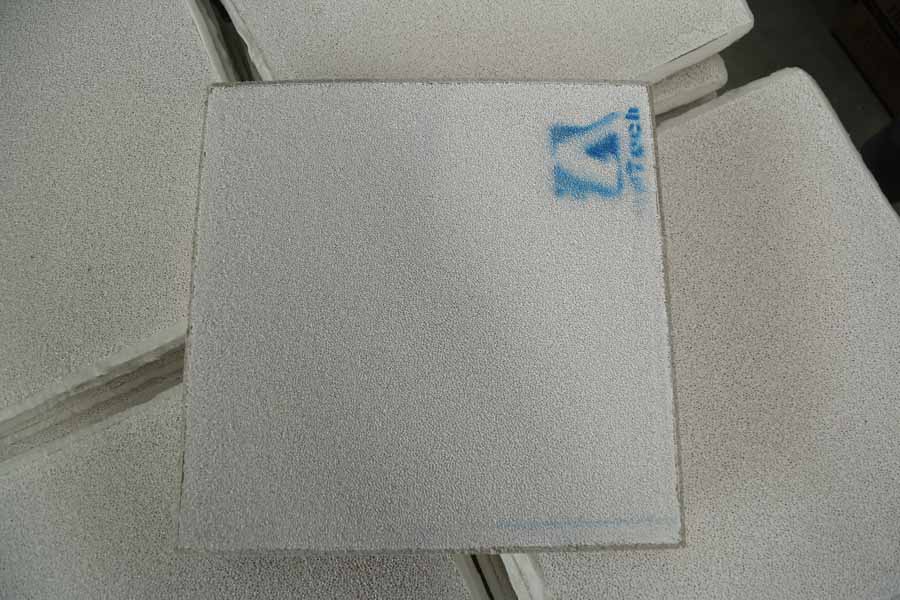
The relative pore content (porosity) of the porous material of Ceramic Used To Filter Metal varies. According to the porosity, it can be divided into low and medium porosity materials and high porosity materials.
Most of the pores in the former are closed, and its behavior is similar to the inclusions in the material;
The latter has three forms, pore form and continuous solid phase form.
The first form is a continuous solid, two-dimensional polygonal arrangement, the holes are correspondingly separated by cylinders, similar to the hexagonal nest of bees, so this two-dimensional porous material can be visually called “honeycomb material”.
The second form is that the continuous solid has a three-dimensional network structure, and the formed pores are interconnected. This three-dimensional porous material is called “open-cell foam.”
The third form is a continuous solid and polyhedral wall structure, which separates closed pores. This three-dimensional porous material is called “closed-cell foam.”
Of course, there is a “semi-open cell foam” between the open cell foam and the closed cell foam.
The ceramic foam filter should have sufficient strength. Alumina ceramic foam filters are more brittle and hard.
When the strength is insufficient, it is easy to break and shatter, which is not only unfavorable for storage and transportation.
Once falling into the aluminum during the filtration process, the quality of the steel ingot will also be affected. The compressive strength of ceramic foam filters is generally 0.6 MPa.
The ceramic foam filter produced by our factory has never been disintegrated or broken. In case of chipping phenomenon, because it does not stick to the aluminum liquid, it mostly floats on the liquid surface. As long as the oxide film of the molten aluminum is not broken, the fragments will not be caught by the molten aluminum.

